Recording conversations or phone calls can be tempting, whether for personal reference, workplace documentation, or legal purposes. But many people wonder: is it illegal to record someone without their permission? The answer isn’t always simple, as it depends on local laws, the context of the recording, and the parties involved.
Understanding the Basics of Recording Laws
Before pressing “record,” it’s important to understand the legal framework around recording conversations:
One-Party Consent vs. Two-Party Consent
Some regions operate under one-party consent states, meaning only one person in the conversation needs to agree to the recording. In contrast, two-party (or all-party) consent states require everyone involved to give permission before a recording can legally take place.
Public vs. Private Spaces
Recording someone in public is often treated differently than in private. Conversations held in public where there is no reasonable expectation of privacy may be recorded legally. However, recording private conversations without consent can lead to legal issues.
Audio vs. Video Recording
Laws may also differ between audio recordings and video recordings. For example, it is illegal to video record someone without their consent in certain jurisdictions, even if the audio component is allowed under one-party consent rules.
Recording laws by states
Here’s a brief summary of how different countries/regions treat the legality of recording someone without their permission. Laws vary widely:
United States
Federal law: generally requires at least one party’s consent for recording private conversations (so a participant can record).
State laws differ:
One-party consent states: Most U.S. states allow you to legally record a conversation if you are a participant and you consent to it, you don’t have to tell the other people.
All-party consent states: Some states require everyone involved in the conversation to agree before recording. These include California, Florida, Delaware, Illinois, Maryland, Massachusetts, Michigan, Montana, New Hampshire, Nevada, Oregon, Pennsylvania, and Washington.
Outside those states, only one party’s consent is needed. However, even in one‑party states, recording someone else’s private conversation when you’re not involved is usually illegal.
European Union
Most EU countries treat private communications as strongly protected. Even though individual Member States vary, privacy and data protection laws (e.g., GDPR) apply to recordings collected and used, especially by organizations.
France: Must obtain all parties’ consent before recording. Unauthorised recording is typically a criminal privacy violation.
Germany: Also requires all participants’ consent before recording calls or conversations.
Spain: Similar strong consent rules; businesses must explicitly inform and get approval.
Netherlands/Poland/Sweden: Individuals can record if they are a participant, but third‑party recording is prohibited, and data protection law controls how recordings are used.
United Kingdom
The UK generally allows one‑party consent for private recordings: a person involved in the call can record without telling the other party, for personal use. However, sharing or disclosing those recordings, or business use, triggers data protection laws (UK GDPR & Data Protection Act), meaning you often need consent or a legitimate purpose. Interception by a third party is prohibited; only participants can record for personal use.
India
India generally follows one-party consent: you can record calls or conversations if you are a participant. There’s no specific “two‑party consent” law, but recordings can be challenged under privacy or cyber laws if they violate someone’s rights. If the recording is processed as personal data, India’s data protection rules (e.g., Digital Personal Data Protection Act) may require consent for processing and purposes like storage.
Australia
Australia’s telecommunications law generally prohibits intercepting communications without consent, and specific state/territory laws also govern recording. Many states and territories have strict rules where recording private conversations without consent is illegal, and police need warrants for interception.
Middle East / Other Countries
Saudi Arabia: One‑party consent is allowed, but sharing publicly is illegal and can lead to heavy fines.
Qatar: Private call recording is generally prohibited without consent, and recordings are not admissible in court.
Oman & Bahrain: Require consent from all parties for legal recordings and limit use; unauthorized recordings may lead to liability.
Common Legal Questions
Here are some frequent questions people have about recording:
Q1. Is it illegal to record a phone call?
A1: The legality depends on whether the call is in a one-party or two-party consent area. Always check the rules for your state or country.
Q2. Is it wrong to record a conversation?
A2: From a legal perspective, “wrong” can vary by jurisdiction. From an ethical standpoint, recording someone without their knowledge may breach trust.
Q3. Can someone record you without permission?
A3: In one-party consent regions, yes. In two-party consent areas, doing so could lead to legal penalties.
Q4. Is it illegal to record people's voices without them knowing?
A4: Yes, in many situations, this can violate privacy laws, especially if the recording is used for commercial or public purposes.
Tools and Devices for Recording
Recording high-quality audio and video starts with choosing the right equipment. For audio, microphones are essential. Dynamic microphones are durable and great at handling loud sounds, making them perfect for podcasts and live recordings. Condenser microphones capture more detail, ideal for studio vocals and instruments. For interviews or mobile video, lavalier (lapel) microphones and shotgun microphones offer flexibility and clear sound even in busy environments.
Besides microphones, audio interfaces, mixers, and field recorders are important for controlling and capturing sound.
For video recording, both cameras and lighting matter. Smartphones can handle simple 4K recording, while mirrorless or DSLR cameras offer higher quality and creative control through interchangeable lenses. Accessories like microphone stands, pop filters, and headphones, combined with editing software such as Audacity, Logic Pro, Premiere Pro, or DaVinci Resolve, help creators produce polished, professional results.
Extra Tips. How to Translate Voice Recordings with AI
Translating voice recordings has never been easier thanks to AI technology. Instead of manually transcribing audio and then translating it, AI-powered tools can handle the entire process. Some AI platforms, like BlipCut Video Translator, can even create a natural-sounding voiceover in the translated language. This means you can get a fully localized audio version of your recording without extra tools.
Key Features:
-
Supports voice translation and localization in 140+ languages.
-
Allows you to record voice and translate audio and voice recording on PC or mobile.
-
Perfectly clone voices from voice recordings, even there are multiple speakers.
-
Transcribe audio to text with a 99% accuracy.
-
Edit transcription and translation easily for free.
How to Use:
Step 1:Open BlipCut official page and then upload your voice recording files.

Step 2:Select your preferred language and voice, and then press on the Translate button.

Step 3:Edit the transcription or translation if required. It’s free to edit without extra credits.

Step 4:Finally click Export button to save the translated file in an audio format.

Conclusion
While technology makes recording simple, the legality of recording someone without their permission is nuanced and varies by jurisdiction. Knowing whether your region requires one-party or all-party consent is essential. When in doubt, always prioritize transparency and ethical practice over secrecy. Furthermore, With AI tools like BlipCut, translating voice recordings becomes seamless, saving hours of manual work and helping your content reach a global audience.
Leave a Comment
Create your review for BlipCut articles







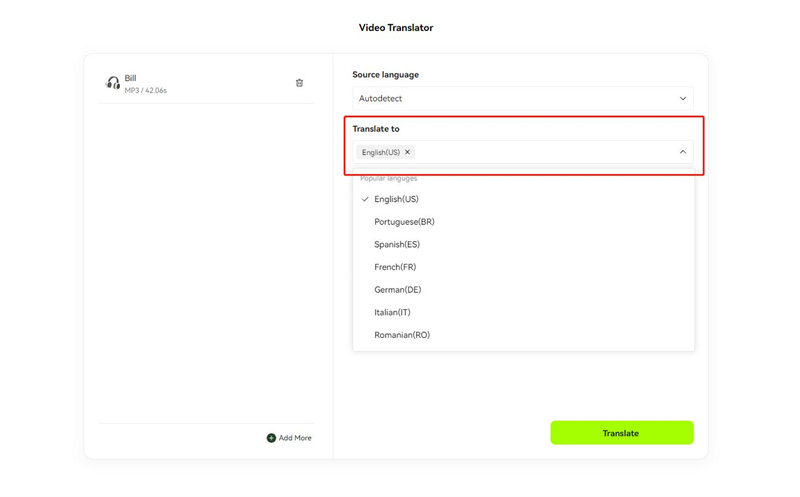
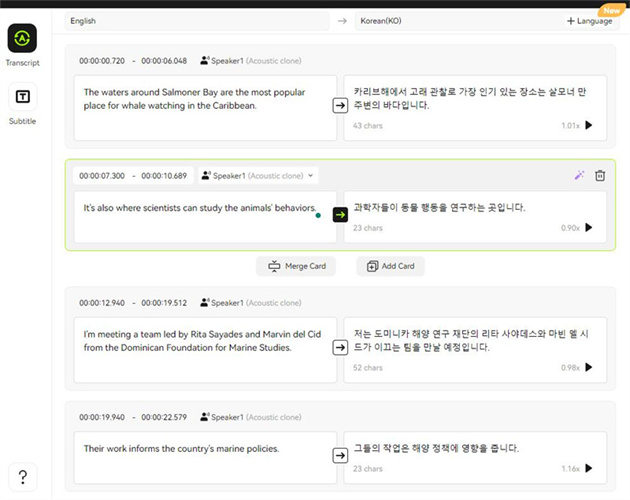
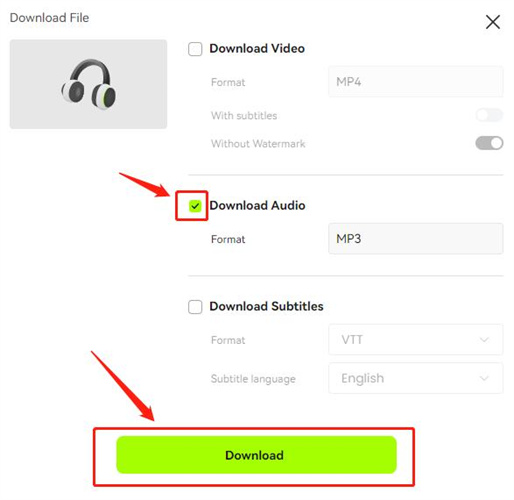


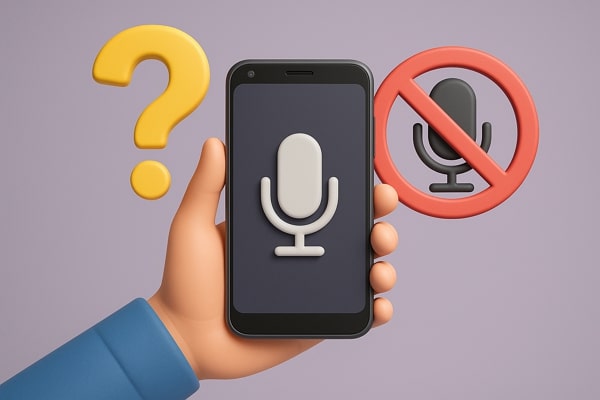
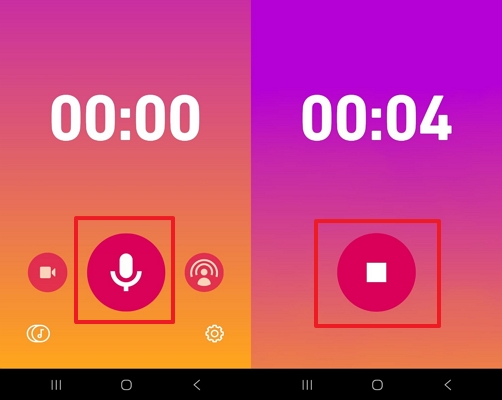
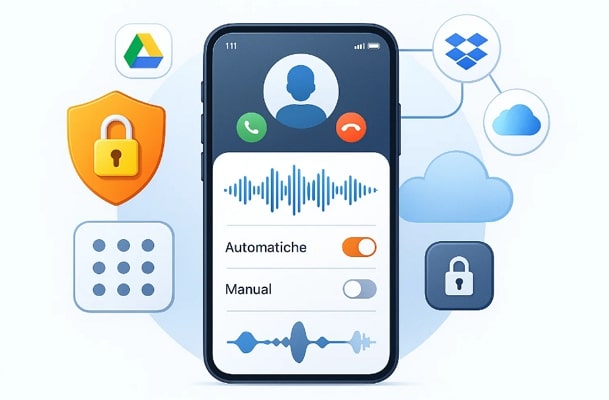
Blake Keeley
Editor-in-Chief at BlipCut with over three years of experience, focused on new trends and AI features to keep content fresh and engaging.
(Click to rate this post)